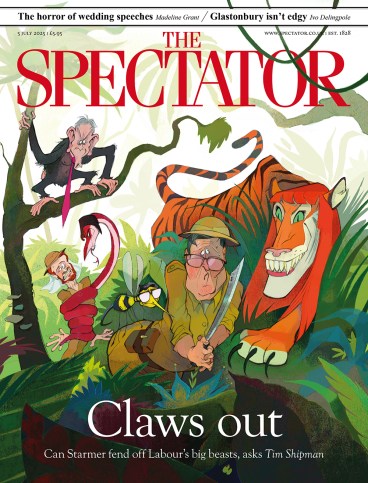
The usual piece about public libraries runs like this. Public libraries are for ‘more than just books’. They are in a desperate plight after years of cuts, or better still ‘Tory cuts’. Librarians, who are heroes, struggle to go on serving their local communities. Libraries are hanging on by a thread, and because of those government cuts can’t be as useful as they once were. The only solution, of course, is more money from central government to local authorities, who, of course, will dash to spend the extra millions on reinstating public libraries and not add it to other things they want to splurge on. It’s tragic, for instance, that because of ‘Tory cuts’, Kent council is being forced to consider closing down and selling many of its library buildings in order to go on paying £350 million in no doubt vital recruitment services over four years. Something like that.
Libraries are more than just books, librarians chant, tossing their solitary copy of Buddenbrooks into the skip
My observation is that most of the journalists writing these tender-hearted pieces haven’t actually stepped through the door of a public library in years. They are under the general impression that public libraries are still the wonderful intellectual resources of their youth and childhood, though typing the words ‘libraries are more than just books’ must give even them pause for thought. If books come so far down the list of libraries’ priorities, what’s the point of them? Lots of things could be community hubs – bus shelters, park benches, the fountains at a shopping centre, the café at your nearest John Lewis, the toilets at Paddington to the LGBTQIA+ community, bless them. There doesn’t seem to be a lot of point keeping a handsome Victorian building going as a mere drop-in centre.
As a chronic reader and the son of an old-school librarian, I can say that my belief in libraries is as strong as anyone’s. I went from the children’s library at Old Malden (Enid Blyton’s Find-Outers series) to the one at Sheffield Broomhill, a beautiful building (Billy Bunter, J.P. Martin’s Uncle, Professor Branestawm).
Then there was the magnificent 1930s Sheffield Central Library, still under the redoubtable thumb of the legendary councillor Enid Hattersley, Roy’s mum. After the setting up of municipal public libraries following an 1850 Act, Sheffield was one of the few to stock fiction at all: librarians have always been quite censorious people and it took most of them decades to come around to the idea that their readers might like to borrow and read novels. Sheffield was always much more liberal, and the fiction shelves were a glorious introduction to the classics as well as newer novels. I borrowed and read most of Nabokov, Conrad, Orwell, Iris Murdoch, Muriel Spark. Tantalising presences like those charming Scott Moncrieff Proust volumes with the scratchy Philippe Jullian illustrations would have to wait, but exercised an allure over me for years.
And then my mum sneaked me into Sheffield University Library, with its still more thrilling holdings. By the time I got to Oxford, I knew from the first day what I wanted out of the university. It was the books in the Bodleian. It started with a sight of a line of books, in the middle, one with the words NABOKOV PNIN on the spine. I don’t know why it exerted such a pull on me. That book had been there 20 years before and would be there in 20 years’ time. The sight of the date stamps were magical, too, to me; the idea that someone had read The Man Who Was Thursday, and renewed it repeatedly, the year before I was born, someone I would never know and yet whom I knew, our passion shared.
There is a recognisable process that has taken place in many formerly great institutions in this country – newspapers, concerts of classical music and certainly public libraries. First, an efficient and clearly defined service should be identified. In the case of libraries, this meant the making available of a wide range of interesting and good-quality books, the success and popularity of a library being in direct proportion to the number of books it holds. Secondly, the institution’s purpose should be declared inadequate. In this case, the mantra that ‘libraries are more than just books’ starts being recited as preparation for what is to follow.
Thirdly, an assault by the administrators themselves on the most valuable resources of the institution. In the case of libraries, this has meant a commitment to the principle of getting rid of as many books as possible. The practice, labelled by librarians as ‘deaccessioning’ or, repulsively, ‘weeding the stock’, rests on some untested claims. One, that old books somehow physically disintegrate, was long ago annihilated by that great man Nicholson Baker in a rare polemic against librarians. Another is that users find the mere presence of old books off-putting. Libraries are more than just books, the librarians chant, tossing their solitary copy of Buddenbrooks into the skip.

The immediate result of these claims, in some quarters, is a professional principle that a portion of a library’s entire stock – possibly as much as 5 per cent – should be disposed of every year. In theory, a library’s current holdings could be thrown away in 20 years. How is this decided? Do we suppose that a junior librarian should be making a decision about which novels by George Meredith or Edgar Mittelholzer have the literary merit to be kept? No – they just throw anything away that hasn’t been borrowed since a certain arbitrary date. The idea that books might have a value beyond recent popularity, or indeed, that librarians are there to look after their holdings, seems anathema.
Go into your local library and look at the fiction shelves. You won’t find Meredith or Nabokov or Proust or Thackeray or any of the good writers who have taught us how to think and feel. You might, at best, be able to order up a copy of a few of Dickens’s novels from a remote stock. You certainly aren’t going to come across them in an act of idle browsing. At best, you are going to find shelves of terrible paperback novels expected to be disposed of in a year or two, unlikely to appeal to anyone developing an interest in literature who wants to make their own way discovering books.
Librarians have made libraries useless by throwing away most of what made them useful. I have been writing a history of the novel in Britain over the past few years, and one of the most melancholy aspects of it is that if I bought a copy of a great but slightly unfashionable classic from AbeBooks, it usually turned out to be an old public library copy.
Do we suppose a junior librarian should decide which novels by George Meredith have literary merit?
And then the fourth stage of the process takes hold. An institution, having damaged itself, is of much less use to the people who might be expected to use it. They stop using it. Forty-five years ago, the 15-year-old me would have gone to Sheffield City Library to see whether I could find a really good novel on the shelves I’d never heard of. And the library on a Saturday morning was as crowded as a good butcher or baker. No one that age would waste their time looking in a library for that now.
Finally, we reach the fifth stage. Those who administer the institution notice that it is used much less than it was and no longer serves any general purpose. What, after all, is the point in going on funding these places? Times move on. They’d be wonderful places without all those frightful Tory cuts, we can assure you. Councils have so many calls on their depleted resources – all those history months to mount, all those recruitment consultants to pay. Nobody uses libraries. Let’s sell them off.
I have a proposal for anyone intending to bemoan the closure of municipal libraries. In reality, they closed years ago. Anyone who feels like wringing their hands, I recommend a visit to enquire how many of the dozen greatest novels in the English language are usually on the open shelves: Middlemarch, The Wings of the Dove, Bleak House, Nostromo, Mansfield Park, Tom Jones, Villette, A Journal of the Plague Year, The Old Wives’ Tale, A Handful of Dust, Mrs Dalloway, Vanity Fair would be a start. Are they there? Any of them? No? Your library has no point. Sell it off and, if you can afford it, join the London Library, which never disposes of its old books. That’s not what a library does.







Comments